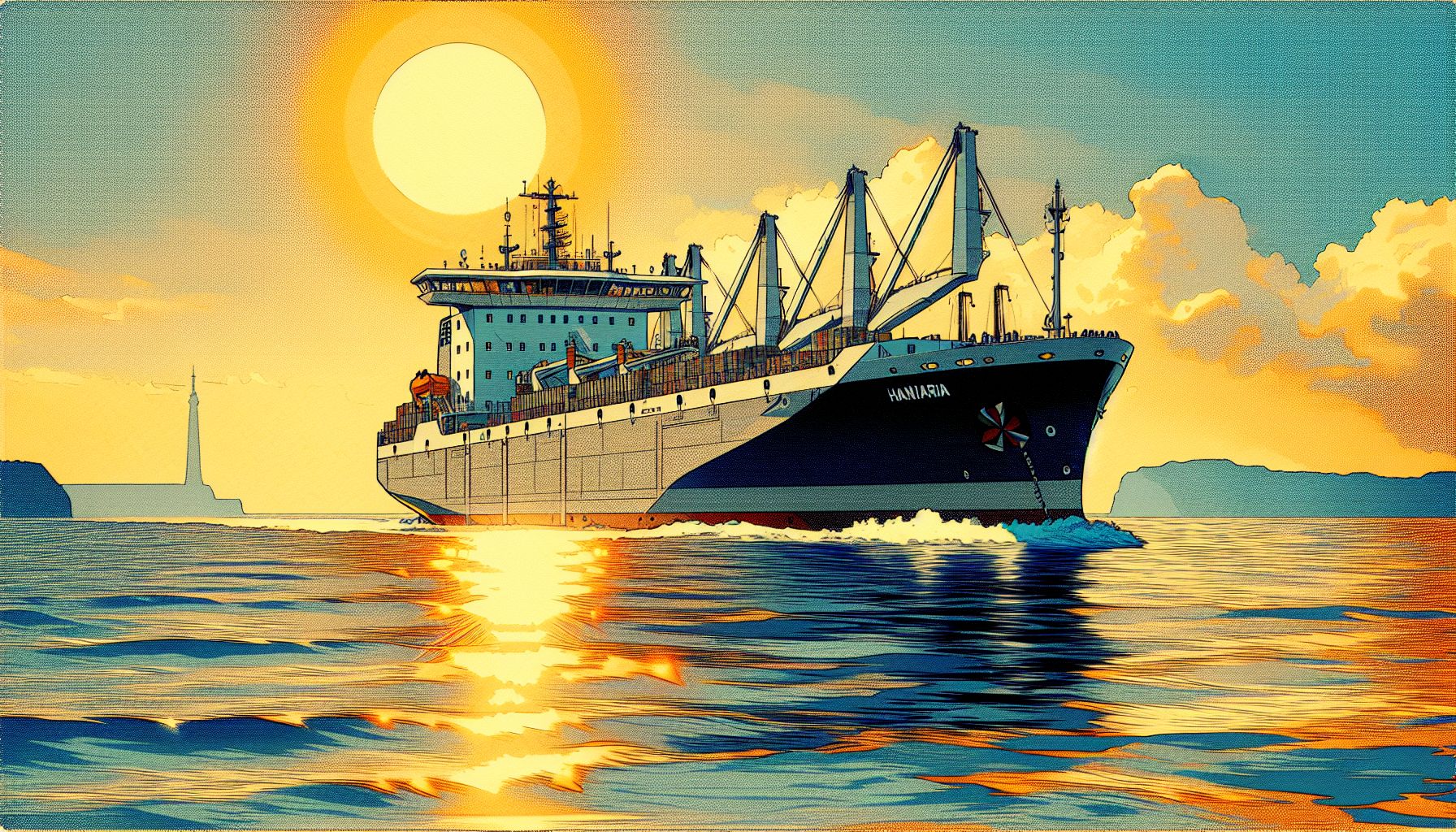Japan Tests World's First Large-Scale Hydrogen-Powered Ship

Kokura, Friday, 28 June 2024.
Japanese firms successfully demonstrated HANARIA, a 248-ton vessel powered entirely by hydrogen fuel cells, marking a significant advancement in green maritime technology. This zero-emissions ship aims to reduce carbon emissions from coastal shipping, supporting Japan’s 2050 carbon neutrality goal.
A Landmark Achievement in Maritime Technology
The successful demonstration of HANARIA represents a major milestone in the pursuit of sustainable maritime technology. The Nippon Foundation, in collaboration with several manufacturers and shipping operators, spearheaded this innovative project. The ship’s demonstration showcased its capabilities by registering zero CO2 emissions from departure to arrival, highlighting the potential of hydrogen fuel cells in reducing the carbon footprint of coastal shipping.
The Road to Carbon Neutrality
Japan, an island nation with a heavy reliance on coastal shipping, has set an ambitious goal to achieve carbon neutrality by 2050. Coastal shipping accounts for a substantial portion of Japan’s transportation sector emissions, contributing 10.25 million tons of carbon emissions annually. The development and successful testing of HANARIA is a pivotal step towards mitigating these emissions and achieving the nation’s environmental goals.
Technological and Social Integration
According to Yoshihiko Hamamura, the project’s chief leader, the realization of a hydrogen society requires not only technological advancements but also the integration of these technologies into city and social design. The Nippon Foundation plans to continue its efforts by testing two additional hydrogen-powered vessels by the end of fiscal year 2026, including a yacht and a hydrogen-powered tanker. This ongoing commitment underscores Japan’s leadership in green maritime innovation.
Global Implications and Future Prospects
The successful demonstration of HANARIA has significant implications beyond Japan. It sets a precedent for other nations and industries to adopt similar zero-emissions technologies. For instance, the Scripps Institution of Oceanography in the United States is developing the California Coastal Research Vessel (CCRV), a hydrogen-hybrid research vessel, to further scientific understanding of environmental phenomena. Similarly, European countries like Norway and the Netherlands are exploring hydrogen-powered vessels for both commercial and leisure purposes.
A Global Shift Towards Hydrogen
The maritime industry worldwide is witnessing a shift towards hydrogen as a viable alternative fuel. In the Netherlands, the first hydrogen-fueled superyacht, Project 821, developed by Feadship and featuring MAN Cryo technology, is pushing the boundaries of green innovation in the luxury yacht segment. In Norway, a project to retrofit an LNG-powered cargo ship to operate on hydrogen fuel cells is underway, supported by the Norwegian government’s ENOVA fund. These initiatives highlight a collective global effort to decarbonize the maritime sector and combat climate change.
Bronnen
- www.goodnewsnetwork.org
- seapowermagazine.org
- www.marinelog.com
- shipandbunker.com
- www.hydrogenfuelnews.com
- www.tradewindsnews.com

